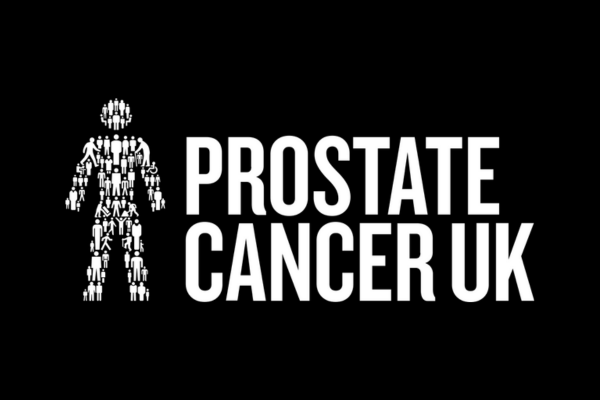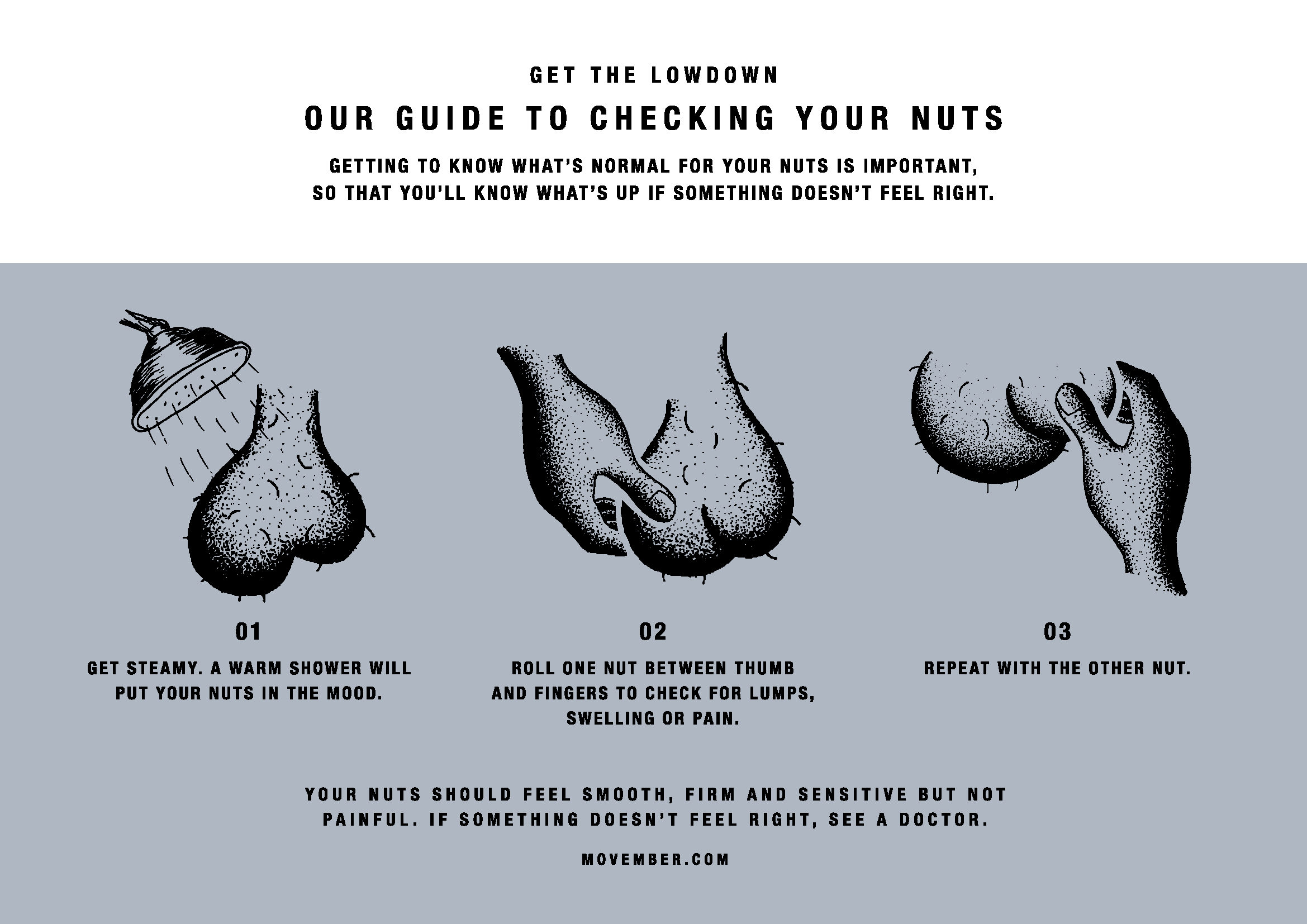Men's Health Page
At Moatfield Surgery, we not only want to help you to manage your current health needs but also to prevent further health problems from developing.
This page is to help educate men on their own health and how to look after themselves.
Taking more exercise, having a healthier diet, achieving a healthy weight, stopping smoking and drinking less alcohol can improve your health and help prevent many long-term conditions.
Contents
Mental Health
While mental illnesses affect both men and women, the prevalence of mental illnesses in men is often lower than in women.
Whether this be because of the pressure that men feel to be 'strong' and 'manly' or because they are embarrassed; the matter of men's mental health has become a big concern.
This stigma of 'big boys don't cry' is something we would like to help eradicate.
One leading global organisation committed to changing the face of men's health is Movember. Their movement for mental health, specifically for men, has never been more important.
Not only will you find other men sharing their stories but gain the resources to help you, your friends and your family.
Reach Out with ALEC - Developed by R U OK?
Ask.
- Start by asking how he's feeling. It's worth mentioning any changes you've picked up on.
- Has he stopped replying to your texts? Does he sound different on the phone? Has he gone quiet in the group chat?
Listen.
- Give him your full attention. Let him know you're hearing what he's saying and you're not judging.
- You don't have to diagnose problems or offer solutions, but asking questions lets him know you're listening.
Encourage Action.
- Help him focus on simple things that might improve how he feels. Is he getting enough sleep? Is he exercising and eating well?
- Maybe there’s something that’s helped him in the past – it’s worth asking.
Check-In.
- Follow up your conversation with a phone call or FaceTime.
- This helps to show that you care; plus, you’ll get a feel for whether he’s feeling any better.
Other Resources
Prostate Cancer
In the UK, about 1 in 8 men will get prostate cancer in their lifetime. Prostate cancer mainly affects men over 50, and your risk increases with age. The risk is even higher for men of colour and men with a family history of prostate cancer.
- Early or Localised Prostate Cancer doesn't usually cause any symptoms. That's why it's important to know your risk.
- One sign may be urinary problems. This could be mild and happen over many years. This may be a sign of a benign prostate problem, rather than prostate cancer.
- There is no way of knowing if you have prostate cancer without visiting your doctor.
You may want to speak to your GP if you're over 50 (or over 45 if you have a family history of prostate cancer or are a black man), even if you don't have any symptoms. These are all things that can increase your risk of prostate cancer.
We understand that having these sorts of conversations can be difficult. Prostate Cancer UK has put together a form which you can fill out at home to bring with you to your GP appointment.
Testicular Cancer
Testicles are responsible for the production of male hormones (mostly testosterone) and sperm.
Testicular cancer starts as an abnormal growth or tumour that develops in one or both testicles. There are several types of testicular cancer, but the most common is the germ cell tumour.
In the UK, testicular cancer is the most commonly diagnosed cancer in young men.
Men with undescended testes at birth, or who have a family history, like a father or a brother who has had testicular cancer, are at an increased risk.
The best thing you can do for your testicles is to check them on a monthly basis, and if something doesn't feel right, head to the doctor.
Movember has put together this helpful guide to help educate men on how to check their testes
- Have a warm shower
- Roll one testicle between your thumb and fingers to check for lumps, swelling or pain
- Repeat with the other testicle.
Your testicles should feel smooth, firm and sensitive but not painful. If something doesn't feel right, see a doctor.
Other Resources
Gynaecomastia (Enlargement of Male Breast Tissue)
Gynaecomastia is the enlargement of male breast tissue. This common condition mainly affects teenage boys and older men, but it can affect men at any age.
The symptoms of Gynaecomastia vary; you may experience a small, firm enlargement of the breast tissue or a larger breast. The condition can affect one or both breasts and could be tender or painful to touch.
For more information on the Causes, diagnosis and treatment of Gynaecomastia, visit the Breast Cancer Now Website.
Sexual Health
We want to help improve the sexual health and well-being of men and raise awareness of the extent to which sexual problems can affect the general population.
We understand that talking about your sexual health can be a little daunting and not everyone is comfortable enough to open up to their GP.
The Sexual Advice Association has great resources for any FAQ on your sexual health.
Sexually Transmitted Infections (STIs)
Many people with sexually transmitted infections (STIs) do not get symptoms, so it's worth getting tested even if you feel fine.
If you think you have an STI, the earlier you're tested, the sooner treatment can be given if it's needed.
An STI can be passed from one person to another through sexual contact, including vaginal, anal and oral sex.
Erectile Dysfunction (Impotence)
Erectile dysfunction (ED) means that you cannot get and/or maintain an erection.
In some cases, the penis becomes partly erect but not hard enough to have sex properly. In other cases, there is no swelling or fullness of the penis at all. Both can have a significant effect on your sex life. ED is sometimes called impotence.
The Sexual advice association have put together a very informative fact sheet to answer all the FAQ on ED.
Other Resources

LGBTQ+ Support
LGBTQ is an acronym for lesbian, gay, bisexual, transgender and queer or questioning. These terms are used to describe a person’s sexual orientation or gender identity.
Your sexual orientation is a way to describe the feelings you have. There are lots of words or labels used to describe these but, because these feelings are personal, you may find the words do not describe your feelings exactly.
We have curated a bunch of resources and support platforms that are available to guide and support you.
-
Allsorts Youth Project is a Sussex-wide project based in Brighton that listens to, supports and connects children and young people who are LGBT+ or unsure of their gender identity and/or sexual orientation.
-
Age UK has great resources for the LGBTQ+ older community to help you understand your rights and make sure they're always respected.
-
West Sussex County Council have put together some local advice to young persons and their families to support them through their journey.
-
MindOut is an LGBTQ+ mental health service run by and for the LGBTQ+ community. They work to improve the mental health and well-being of the community and to make mental health a community concern.
Do You Feel Safe?
One in 6-7 men will be a victim of domestic abuse in their lifetime.
If you or someone you know is experiencing Domestic Abuse then please have a look at our Domestic Abuse page, we are here for you and you are not alone.
Revised 21/05/2025



